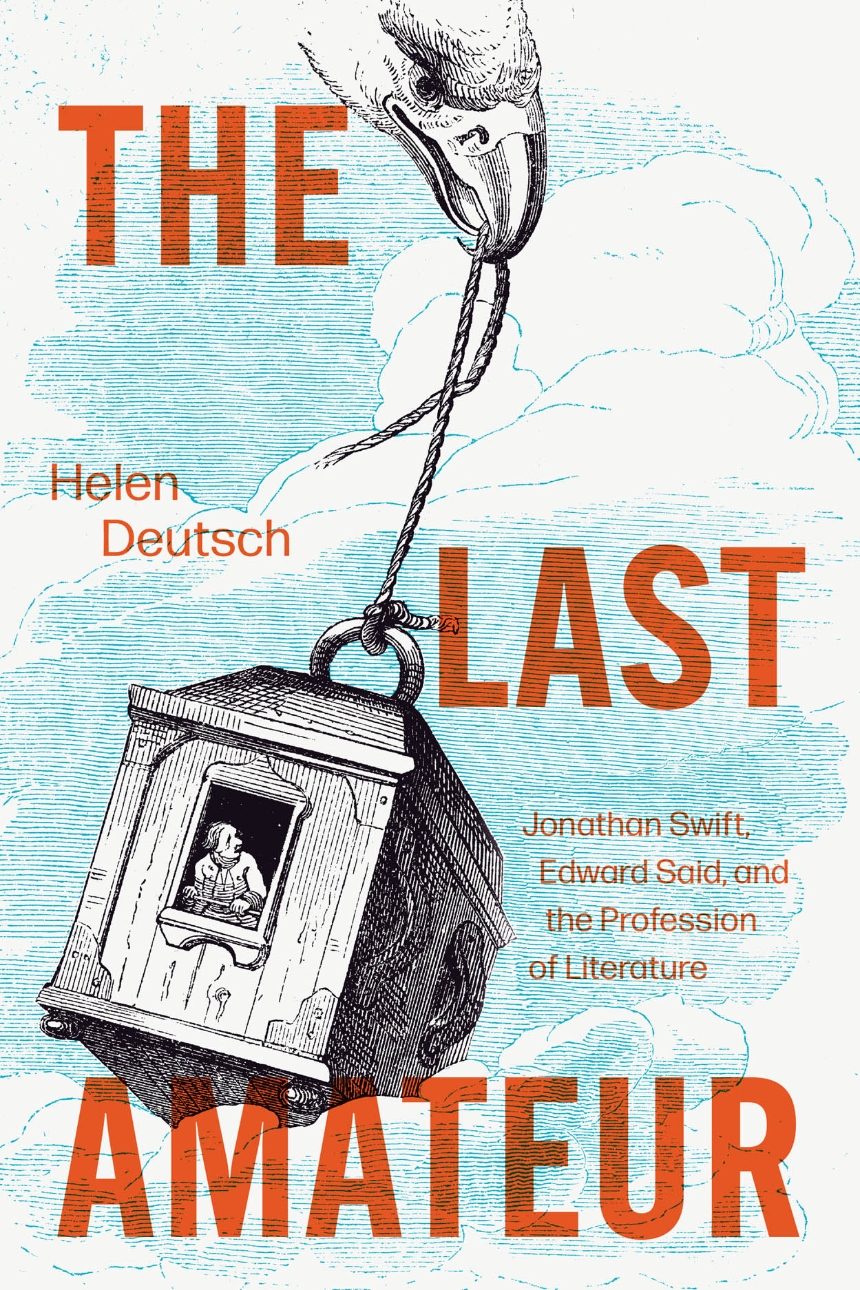The Last Amateur
Jonathan Swift, Edward Said, and the Profession of Literature
The Last Amateur
Jonathan Swift, Edward Said, and the Profession of Literature
Joining the unfinished conversation between the satirist Jonathan Swift and the critic Edward Said, The Last Amateur argues for the transformative potential of literature.
What does “Swiftian” mean to you? For many, the name is synonymous with ingenious satire and an acid, clarifying mix of decorum and outrage. Jonathan Swift was, of course, the author of not only Gulliver’s Travels but also A Modest Proposal, which the columnist Gene Lyons recently called “perhaps the most penetrating anti-racist essay in the English language.” Small wonder, then, that the Anglo-Irish satirist was a lifelong inspiration to the great Palestinian American critic Edward Said, who for many years worked on an unfinished book about Swift and cultivated a Swiftian voice across his career.
Helen Deutsch’s highly personal book explores what Said’s love of Swift—and hers of both—tells us about not only these authors but also the powers of criticism itself. The Last Amateur is about how one comes to love one writer through another. Deutsch scrutinizes Said in relationship to Swift to raise questions of her own about the profession of literary studies. At a time when many in the field have lost faith in critique, Deutsch shows how passion and a refusal of professional propriety—the hallmarks of the amateur—can enliven critique again.
What, then, does it mean to be a Swiftian? The Swiftian hears Swift’s animus and uses it as an incentive for their own freedom of thought. Said was a Swiftian because the experience of reading Swift freed him to speak out, to have something serious to say. Deutsch’s revelatory book is an exercise in hearing Swift’s voice and speaking in her own.
232 pages | 4 halftones | 6 x 9 | © 2026
Literature and Literary Criticism: American and Canadian Literature, British and Irish Literature, General Criticism and Critical Theory
Reviews
Table of Contents
1: Getting Angry and Talking Back: Criticism, Ignorance, and Irreconcilability
2: Hearing a Voice, Being a Book: Liberty, Irony, and Teaching for the Future
3: Practicing Music Between the World and the Archive: Returning to Philology, Arguing Without Destroying
4: Challenging Freedom: Late Style, Disability, and the Polyphony of Friendship
Epilogue: Writing About the Book: Remembrance of Things Played
Acknowledgments
Notes
Index
